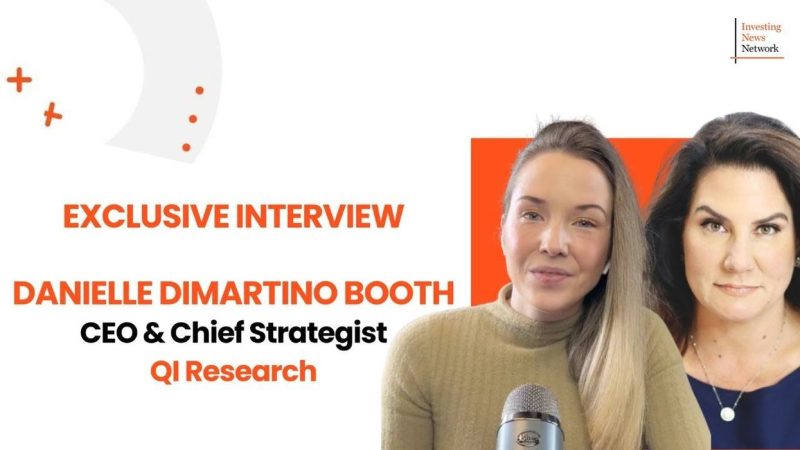**Examining the Relationship Between Trump, Powell, and US Recession**
**Understanding the Fed’s Role**
Danielle DiMartino Booth, a well-respected economist and author, has shed light on the complex relationship between former President Donald Trump, Federal Reserve Chairman Jerome Powell, and the looming threat of a US recession. As Booth aptly points out, the dynamics between these key players have significant implications for the economy and financial markets. Let’s delve into this topic and understand where our focus should lie amidst this uncertainty.
Booth emphasizes the crucial role that the Federal Reserve plays in steering the economy and maintaining stability. Powell’s monetary policies, such as interest rate decisions and quantitative easing, have a direct impact on economic growth, inflation, and employment. However, Trump’s frequent criticisms of Powell and the Fed’s policies created a challenging environment marked by uncertainty and disagreement.
**Trumponomics and Its Influence**
During his presidency, Trump implemented a series of economic policies collectively known as Trumponomics. These policies included tax cuts, deregulation, and trade tariffs, aimed at boosting economic growth and job creation. While these measures initially contributed to a strong economy, they also raised concerns about their long-term sustainability and impact on the national debt.
Trump’s confrontational approach towards Powell and the Fed further complicated matters, as his public criticisms undermined the central bank’s independence and credibility. This strained relationship and lack of cooperation between the two entities added another layer of uncertainty to an already fragile economic landscape.
**The Reality of a US Recession**
As Booth aptly points out, the US economy is facing looming threats of a recession. Economic indicators such as slowing GDP growth, rising inflation, and escalating debt levels are all warning signs that cannot be ignored. The unresolved tensions between Trump, Powell, and their conflicting policy agendas only heighten the risks of an economic downturn.
To navigate these challenging times, investors and policymakers must focus on monitoring key economic indicators, such as employment data, consumer sentiment, and inflation rates. Understanding the interconnected nature of monetary and fiscal policies is crucial for making informed decisions and mitigating risks associated with a potential recession.
**Where to Focus Now**
In the current economic climate, it is essential to prioritize collaboration and communication between government officials, policymakers, and central bankers. By fostering a harmonious relationship based on mutual respect and shared goals, all parties can work towards achieving economic stability and sustainable growth.
Moreover, stakeholders must remain vigilant and proactive in assessing market trends, geopolitical developments, and policy changes that could impact the economy. Maintaining a diversified investment portfolio and staying informed about global economic dynamics are key strategies for navigating uncertainty and mitigating risks associated with a recession.
In conclusion, the intricate relationship between Trump, Powell, and the US economy requires careful scrutiny and strategic planning. By understanding the role of each player and their respective influences, we can better position ourselves to weather potential economic challenges and pave the way for a resilient and thriving economy.
